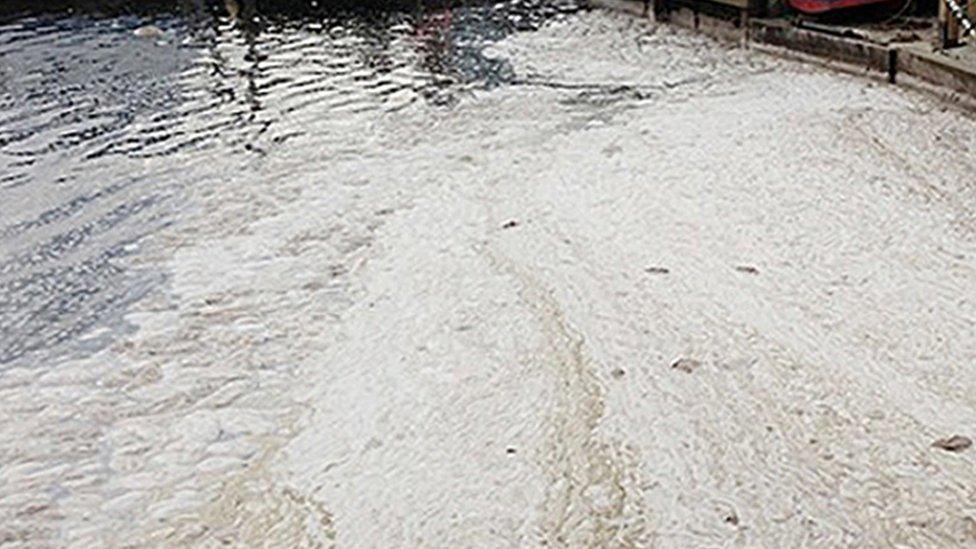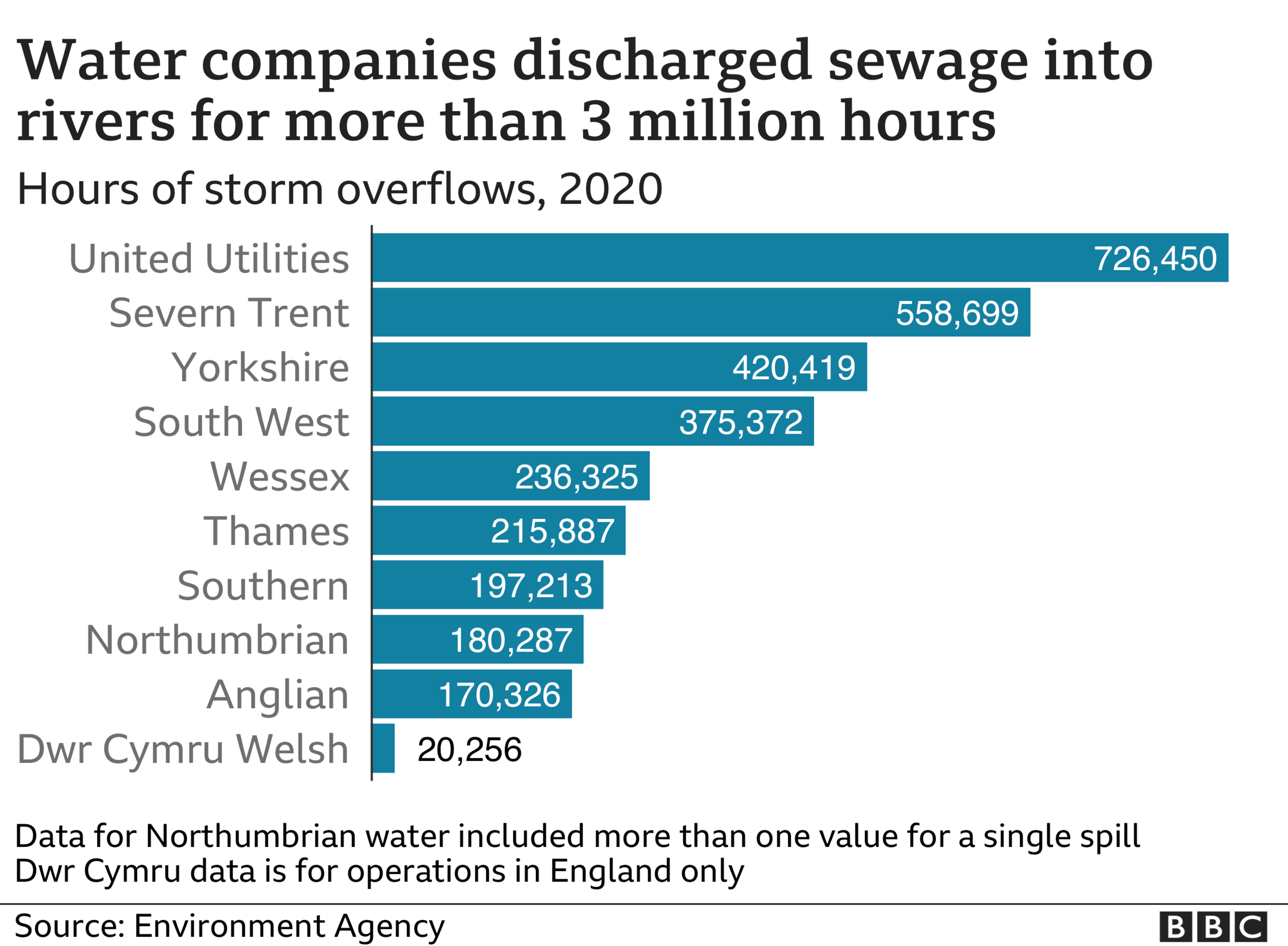Campaigners want tougher action from MPs on sewage
- Published
- comments

Sewage is being pumped into rivers by water companies, which campaigners have called "an act of violence against the environment"
Campaigners are calling on MPs to support tougher action on water companies who dump sewage into rivers.
The row erupted last month when MPs voted against a plan from the House of Lords to cut the pollution - leading to an angry backlash on social media.
But peers forced the issue again and got assurances from the government that they would introduce stronger measures.
MPs approved the plans on Monday, but some fear the government proposals do not go far enough.
Musician Feargal Sharkey, who has led the campaign on the issue, told the BBC it would be "an act of violence against the environment" if the government's plans were approved.
"Not one of our rivers is in good environmental health, with every single one polluted," he said. "And a lot of that is coming from the water companies.
"My perception is this is an attempt by government in a muddle and backed into a corner to get out of it, and it is a shambles."
But Environment Minister Rebecca Pow said the government was "absolutely committed to cutting harmful sewage entering our precious water courses" and was meeting water companies on Monday to make the position "crystal clear".
The Environment Agency allows water utilities to release sewage into rivers and streams after extreme weather events, such as prolonged heavy rain.
This protects properties from flooding and prevents sewage from backing up into streets and homes.
But according to the public body's own figures, water companies discharged raw sewage into rivers in England more than 400,000 times last year, with untreated effluent - including human waste, wet wipes and condoms - released into waterways for more than three million hours in 2020.
Some firms are taking action - with Southern Water announcing on Monday that it was launching a taskforce to cut storm overflows by 80% by 2030 - but there is currently no law to force them to.

The crossbench - or independent - peer, the Duke of Wellington, put forward an amendment to the government's Environment Bill in October in an attempt to address the problem.
It suggested putting a legal duty on water companies and the government to demonstrate progressive reductions in discharges of untreated sewage and would require them to "take all reasonable steps" to avoid using combined sewer overflows.
But when the proposal was voted on by MPs last month, it lost by 265 votes to 202 - even with 22 Tories rebelling against the government to vote in favour of the plan.
The Duke of Wellington put forward the amendment again when the legislation returned to the House of Lords, insisting it was needed to end the "revolting practice".
However, shortly ahead of the debate, the government appeared to perform a U-turn by promising a new legal duty would be placed directly on water companies to make a "progressive reduction" in the sewage it dumps into rivers.
The measure does not go as far as the duke's though, with a spokesman from No 10 saying his would involve an overhaul of the UK's Victorian sewerage system and cost taxpayers upwards of £150bn.
'Real action, not words'
Following a debate in the House of Commons, MPs supported the government's alternative in the Commons by 283 votes to 163, with Conservatives voting in favour and most opposition parties - including Labour and the Lib Dems - voting against.
The bill will now return to the House of Lords, who will decide whether to approved the government's proposal.
Many campaigners had urged MPs to back the duke's tougher plan, with Green Party peer Jenny Jones calling the government option "inadequate".
The director of the Good Law Project, barrister Jolyon Maugham, also called the government's replacement amendment a "cruel trick on those of us who want to be able safely to swim in our rivers and beaches".
And campaign group Thames 21 tweeted: "We need MPs to step up and play their part in bringing in legislation that ensures that water companies invest in ending raw sewage discharges into our rivers.
"We need real action not words."
Some, including Mr Sharkey, are also claiming the government's measure would actually make things worse - legalising water companies to dump as much sewage as they wanted, as long as they showed "progressive reduction".
Mr Sharkey asked: "What does that [phrase] even mean? If they are pumping 3.1 million tons into the rivers and cut that by one ton, is that progressive? You could probably argue that in court.
"But we know is that would still be damaging our rivers and damaging the environment."
But Tory MP Philip Dunne - who rebelled against the government to back the Duke of Wellington's amendment last month - said the claims were wrong and the new plan would "have teeth" to force reductions onto water companies.
The Department for Environment, Food and Rural Affairs also said it was "incorrect" its own amendment was weaker, saying it added enforcement measures that were lacking from the Duke of Wellington's wording.
The department said: "We have repeatedly said the amount of sewage which is pumped into our waters is unacceptable.
"We are the first government to take action on this, but it won't be solved overnight and will need significant investment.
"Our Environment Bill is a key part of the solution."